Election Day: What Schools are Saying
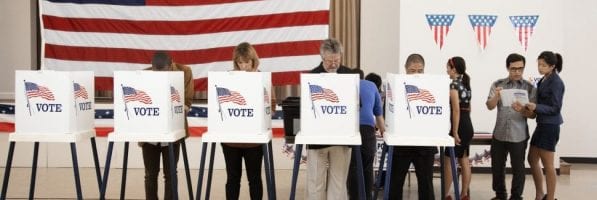
It’s election day in the U.S., so for our international readers: whoops! Let’s check out some of the day’s big stories coming out of U.S. schools.
Engineered Electioneering – Kellogg Insight
“When it comes to persuading voters, the timing of a candidate’s message may be as important as the message itself,” Kellogg Insight explains.
The overall conclusion of how to approach election messaging comes from new research by Angela Y. Lee, Professor of Marketing at the Kellogg School of Management. With Concordia University of Montréal Assistant Professor Hakkyun Kim and University of Minnesota Professor Akshay R. Rao, the trio’s research finds surprising details that former U.S. President Barack Obama successfully utilized in 2008.
In short, the group’s research finds that voters are more responsive to grander, large-scale ideas the further the election is away. However, as Election Day draws closer, more concrete ideas take precedent.
“[Obama] was emphasizing abstract themes and capturing the imagination of caucus goers, while his opponents were capturing the attention of the D.C. establishment, who then spent a fair amount of time dissecting and critiquing their various plans to fix health care, get out of Iraq, and what have you,” Rao says of Obama’s 2008 campaign.
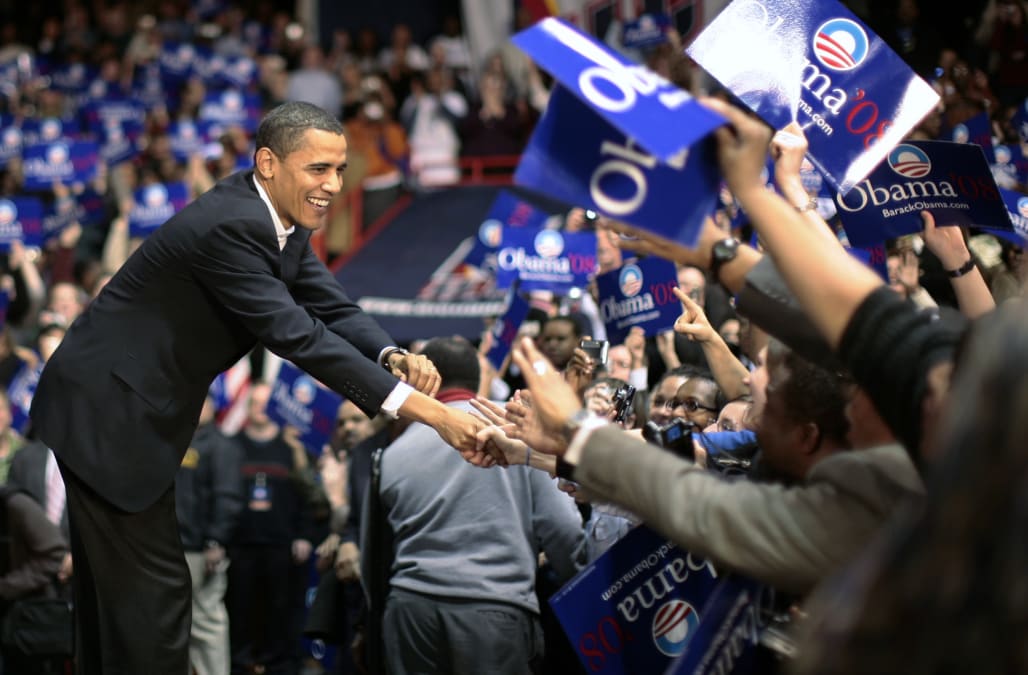
Northwestern Kellogg research finds that sweeping campaign messaging is more effective when Election Day is further away; a campaign tactic utilized heavily by Barack Obama in 2008.
The trio note that this approach goes beyond politics. In fact, they argue, the methods can be utilized successfully by marketing in other industries.
Insights from the study, Lee notes, may help consumer goods marketers develop more persuasive messages and may also help public health officials design more effective campaigns against such health threats as obesity and smoking. For example, she says, messages that urge people to lose weight or quit smoking as an immediate goal should provide concrete information on how the objective can be achieved.
You can find out more about the research here.
Even a Few Bots Can Shift Public Opinion in Big Ways – The Conversation
As the political landscape rapidly shifts in the U.S. and elsewhere, the internet bot game becomes increasingly important. In The Conversation, Tauhid Zaman, Associate Professor of Operations Management, MIT Sloan School of Management analyzes just how much of an impact these elements may have on Election Day.
His research found that bots had a much smaller presence than others may have speculated: “less than 1 percent of the active Twitter users.”
In addition, Zaman’s work, with his students net another surprising result: Twitter bots helped Hillary Clinton in 2016 more than Donald Trump.
The reason for this, Zaman concludes, is that the effectiveness is not due to the volume, but rather how much individual bots perform. The research finds that there were more Trump-supporting bots in ’16, however, Clinton bots tweeted more on average. He does, however, note that the research only gives a small window into the potential impact bots have.
It’s worth noting that our analysis looked at a relatively small number of users, especially when compared to the voting population. And it was only during a relatively short period of time around a specific event in the campaign. Therefore, they don’t suggest anything about the overall election results. But they do show the potential effect bots can have on people’s opinions.
Click here to read more about Taman’s work.
The Election Just Ahead – The Harvard Gazette
Harvard staff writer Christina Pazzanese, in her newest piece for The Harvard Gazette, details the relative uncertainty of what may happen on Election Day this year. “With polling often inaccurate in the last election, no one can confidently predict what the results will be this time, despite any evident trend lines going in,” she writes.
The focus of her piece lies on three principle elements: youth turnout; hacking; and ideology. On youth turnout, Pazzanese immediately notes that youth demographics have the worst statistical rates of turnout cycle after cycle in the U.S. With infused commitment to voter registration at the Boston university, turnout could reach a record high. However, like Pazzanese says, polling can be “often inaccurate.”
If results from a new Harvard Institute of Politics (IOP) Youth Poll are accurate, turnout among Harvard students could reach a high. Forty percent of voters age 18‒29 say they will definitely vote in the midterm, according to the findings released Oct. 29. Though poll director John Della Volpe said the organizers don’t expect that many to turn out, past trends indicate that, even accounting for the usual gap of -7.5 points between those who say they will vote and those who actually do, the figure suggests young voters will turn out in significantly greater numbers than in many years past. The only midterms in which young voters turned out at a greater rate than their typical 18‒20 percent were in 1986 and 1994, he said.
In regards to voter ideology, Pazzanese paints a more ambiguous outlook.
“Amid such rapid change, political analysts and practitioners have struggled to keep pace, especially since 2016 showed how off-track most had gotten. Many hoping to understand how voters think and behave now recognize that polling and opinion data aren’t delivering a rich enough portrait of where the electorate is moving ideologically, and why.”
Tackling ideology movement in 2018 is endearingly challenging, but left-leaning political data service Catalist, co-founded by current CEO Laura Quinn, a visiting fellow at the Ash Center for Democratic Governance and Innovation at HKS, may have a new approach. The company organized voters into less-than-traditional groups, by approaching potential voters in a different manner.
“So instead of asking questions about expected topics like the Affordable Care Act or gun ownership, which cause people to self-sort into partisan groups, Catalist asks about things that don’t signal an obvious right or left response, but gets at someone’s values. These are queries like ‘Is it morally good or bad to leave a dog out in the rain, or for a soldier to refuse to obey a potentially illegal order from commanders?'” Pazzanese writes. The results are as follows:

Quinn notes the grouping is not a total encapsulation of the electorate, however. “None of these things perfectly explains why people are the way they are. People are complicated, and they change. It’s the constellation of things that you believe that give you a sense of the person.”
You can read more about election day from The Harvard Gazette here.
Fortune Features Wharton Prof’s Insight on Net Neutrality
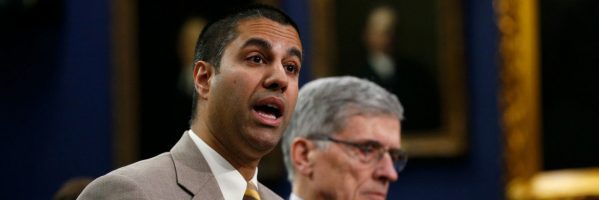
Newly appointed Federal Communication Commission chairman Ajit Pai spoke last week at the Newseum in Washington, D.C., in which he fiercely criticized net neutrality rules. Pai expressed his opposition to the “ … heavy-handed regulations,” of the Title II classification, which prevents paid prioritization of bandwidth.
The Answer To Trump’s Victory Is Behavior, According To Harvard
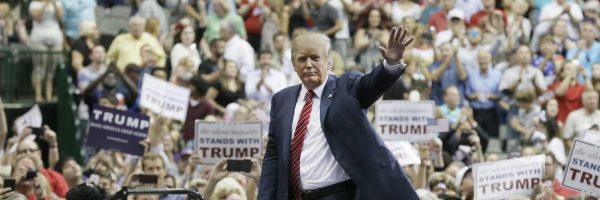
In the early days after the 2016 presidential election, one of the first reflections many are looking into is how polling data was so off the mark.
Trump vs. Clinton: What It Means to Business School Students

It may be U.S. citizens headed to the polls today, but another group is watching the outcome of the presidential election pitting Donald Trump against Hillary Clinton with much more than simply passing interest. Prospective international students thinking of studying in the United States could be significantly impacted by today’s outcome.
National Public Radio (NPR) last month reported on a survey—conducted by FPP EDU Media, a company that matches international students with international programs, and college marketing company International Education Advantage LLC (Intead)—that found that of more than 40,000 prospective students surveyed from 118 countries around the world, 60 percent said they were less likely to study in the United States if Trump is elected, compared to 3.8 percent who reported they would be less likely to choose a U.S. school if Clinton wins.
The survey didn’t ask why, but Intead CEO Ben Waxman told NPR that he suspects Trump’s positions on immigration—including a proposed ban on Muslims entering the country and a wall on the Mexican border that Mexico would pay for—were likely factors. In breaking out prospective students by individual country, the survey found that 80 percent of Mexican students said they would be less likely to study in the U.S. with Trump in the White House.
We should note that the FPP EDU Media/Intead survey included prospective students at both undergraduate and graduate levels and did not break responses out by level of study.
To get a sense of how many international students contemplate graduate management study in the United States, we turned to the Graduate Management Admission Council (GMAC). According to GMAC’s most recent Applicant Trends survey, the majority of applicants seeking admission to full-time two-year MBA programs for the incoming class of 2016-17 were international candidates, representing 52 percent of the applicant pool. Domestic candidates accounted for the remaining 48 percent. The percentage of international students who ultimately enroll at leading business schools is not quite that high, although at most schools they make up a solid third of the class or more. The University of Pennsylvania’s Wharton School this year welcomed 32 percent international students as part of its incoming class, Harvard Business School (HBS) and Kellogg School of Management each boast 35 percent international students and UC Berkeley’s Haas School of Business is at 38 percent.
So, how international applicants perceive study in the United States based on the results of this election could have significant impact on graduate management education as a whole as well as on individual MBA programs at some of the nation’s top schools.
Trump’s Potential Impact on Leading MBA Programs Limited, Hope Some
Rafael Rivera, a dual-degree candidate at HBS and the Harvard Kennedy School, says that if he were just now applying to business school, a Trump victory wouldn’t deter him from coming to the United States. “Even if Donald Trump wins, the U.S. has still a strong, vibrant economy, which has better prospects than other regions such as Europe or Latin America,” he tells Clear Admit. “Also, the best MBA programs are here. I don’t see why the quality of those programs would go down if Trump wins.”
That said, Rivera does have friends and colleagues in his home country of Mexico currently applying to MBA programs who have expressed disappointment about the American elections. “As you can imagine, Mexican citizens feel offended by the constant negative comments of the Republican candidate and his intentions to build a wall.”
HBS Poll Finds Hillary a Clear Favorite
A project Rivera and a fellow HBS classmate undertook earlier this fall underscores how much the U.S. election is in the minds and hearts of even those who can’t cast a ballot. Rivera, together with Jeremy Au, HBS Class of 2017, polled fellow HBS classmates in late September and early October for a pioneering election poll published in the Harbus student newspaper on Oct, 19th.
Rivera and Singapore-born Au are both foreign nationals, which means they cannot vote in tomorrow’s elections. “The idea came because we are both interested in politics (in our respective countries), and we are really interested in getting to know people’s opinion regarding public issues,” Rivera tells Clear Admit. “We hear a lot about polls around the U.S., but we really didn’t know what our classmates think about national issues,” he continues.
These motivations—as well as a poll run by undergrads for the Harvard Crimson—inspired them to run their own poll. “We didn’t have any particular agenda with this poll—we only had the curiosity to know the opinion of our classmates in such important days,” Rivera says. Between Sep. 19th and Oct. 3rd, 236 first-year HBS students were surveyed across multiple sections via in-class voting with privacy screens, and the data was weighted for nationality and gender.
What They Found Surprised Them
Rivera and Wu, in a Harbus piece later republished by the Huffington Post, revealed their findings: HBS students clearly favor Clinton. Clinton received 85 percent of the vote, compared to Trump’s 3 percent. Libertarian nominee Gary Johnson beat out Trump as well, garnering support from 10 percent of those polled. Green Party nominee Jill Stein brought up the rear, trailing just behind Trump with 2 percent of the vote.
“American and international students did not show a statistically significant difference in their preferences,” wrote Rivera and Wu. That said, international students were slightly more in favor of Clinton (88 percent) and even less in favor of Trump (1 percent) than their U.S. classmates (84 and 3 percent respectively). In fact, among international students, Trump trailed both third-party candidates as well, with Johnson getting 7 percent of the vote and Stein getting 4 percent.
Of course, these results are nothing like the incredibly close race suggested by the most recent polls of U.S. voters. As of this writing, Nate Silver’s FiveThirtyEight website shows a popular vote narrowly in Clinton’s favor, 48.8 percent compared to 45.1 for Trump, with Johnson claiming another 4.7 percent.
Rivera and Wu cite four key factors as contributing to Clinton’s lead among HBS students: Obama’s high approval rating among HBS students (88 percent) relative to U.S. voters (52 percent); more HBS students lean Democratic (53 percent) than U.S. voters (36 percent); more HBS Dems support Clinton (94 percent) than HBS Republicans support Trump (52 percent); and HBS independents fall overwhelmingly in Clinton’s camp (80 percent compared to 0 percent for Trump).
Wu and Rivera also note that HBS students are more socially liberal than U.S. voters—on issues ranging from stricter gun control to women’s rights. Where immigration is concerned, HBS students are three times more likely to support increased immigration (63 percent, compared with 21 percent of U.S. voters). On the issue of immigration, 68 percent of international HBS students favored increases, compared to 60 percent of their U.S. classmates.
Interestingly, on the question of whether the distribution of money and wealth in the United States today is fair, HBS student sentiment was almost identical to U.S. voters, with 62 and 63 percent respectively responding that it should be more evenly distributed among a larger percentage of the people. But in terms of how that redistribution might take place, HBS students were divided. Of U.S. HBS students, 38 percent were in favor of heavy taxes on the rich for wealth redistribution. More than half—53 percent—of international HBS students were in favor of higher taxes.
Rivera and Wu cite three factors they believe as potentially contributing to the overall poll results. “HBS students have higher levels of education, higher levels of household income and are younger than the general U.S. population,” they write as factor one. “Most HBS students have work experience in the private sector, and are thus more exposed to workplace issues, international markets and diverse work teams,” they cite as the second factor. “First-year HBS students have also undergone 2 months of daily interactions within 90-student sections, which are sorted for high diversity in nationalities, ethnicities, and experiences,” they offer as a third factor (the complete survey methodology and results can be viewed here).
Wharton Wary of Association with Trump
HBS was the only leading business school we found that had conducted its own election poll, but it is certainly not the only school where anti-Trump sentiment has been documented. Much earlier in the campaign, students at the University of Pennsylvania’s Wharton School sought publicly to distance themselves from the viewpoints of fellow Wharton graduate Trump (who completed two years of college at Wharton after transferring from Fordham and received his undergraduate degree from the school.Trump does not hold a Wharton MBA degree).
In an open letter in July published on Facebook, a contingent of Wharton students, alumni and faculty set out to make clear that Trump does not represent them. “We, proud students, alumni, and faculty of Wharton, are outraged that an affiliation with our school is being used to legitimize prejudice and intolerance. Although we do not aim to make any political endorsements with this letter, we do express our unequivocal stance against the xenophobia, sexism, racism, and other forms of bigotry that you have actively and implicitly endorsed in your campaign,” read the letter, which had garnered more than 600 signatures within days of its publication. As of Nov. 6th, 4028 people had signed.
Likewise, the newspaper of Trump’s alma mater elected not to endorse him for president. In a letter published on Oct. 18th, the Daily Pennsylvanian wrote, “We at the Daily Pennsylvanian are concerned about the precedent that Donald Trump sets for our fellow peers and how he chooses to leverage his affiliation to Penn to the rest of the world. His divisive policies are not only orthogonal to those of Penn, but to democracy.” The letter concluded, “The Daily Pennsylvanian Opinion Board cannot stand behind Donald Trump as a candidate.”
To be sure, the views expressed by the Daily Pennsylvanian are those of the paper’s board—not of the University of Pennsylvania or of Wharton. Both have remained steadfastly tight-lipped throughout the contentious election season about the bombastic alumnus. According to both Politico and the Daily Pennsylvanian, administrators in fact sent an email to Wharton faculty shortly after Trump announced his candidacy in summer 2015 encouraging them to decline media requests for comment and instead direct queries about Trump to the school’s communication staff. The communications staff, for its part, has consistently refrained from commenting.
This post was republished with permission from Clear Admit.
Business and Political Strategy Aren’t So Different, According to Columbia
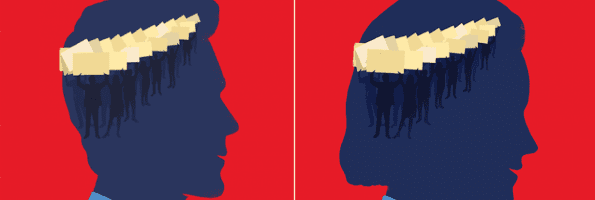
There may be a fine line between how successful business and political campaigns lay out strategies, according to a new Columbia Business School article.
Continue reading…
Questrom Professor Very Skeptical of Trump Economic Plan
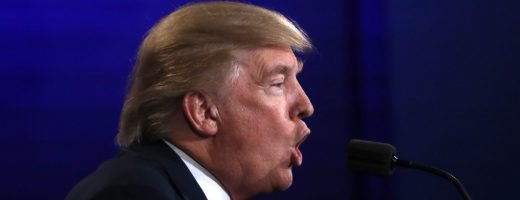
Through the endless waves of scandals, soundbites and all-around misery-inducing headlines caused by the “is this over yet?” 2016 U.S. presidential election, there is still the matter of policy.
And like so many questions tossed on the mountain of concerns of a potential victory for Republican candidate Donald Trump, economic reality is becoming tough to ignore.
Boston University’s Questrom School of Business professor and former Federal Bank examiner Mark T. Williams is among many in the hesitant camp, citing the improbable logistics of Trump’s proposed economic plan. In a guest post with Business Insider, Williams plainly states, “ There is good reason few economists have endorsed Trump’s economic plan.”
“Trump claims his ‘America First’ plan will grow the U.S. economy over the next decade by a whopping 3.5 to 4 percent, generating 25 million new jobs,” he writes. “For perspective, the 1980s much lionized Reagan-era only generated 16 million. If Trump can deliver, who wouldn’t want this economic utopia? Unfortunately, his policy is not grounded in reality.”
To call Williams just skeptical of Trump’s proposed idea would be a disservice. The entire piece acts as a commanding dissection of every angle of the potential policies, from muting global trade, lowering corporate tax rates, trickle-down economics, eliminating financial regulations and even Trump’s much talked-about immigration policies.
“Further, Trump claims that restricting immigration will create economic prosperity. But history has proven this will have the opposite effect,” he writes.
“Immigration helps increase the labor pool of skilled and unskilled workers. More people working, paying taxes, buying homes, and starting new businesses lifts U.S. economic growth. Due to existing demographics, greater restrictions on immigration would only exacerbate the current labor shortage and hobble further economic growth.”
Williams, the author of Uncontrolled Risk: The Lessons of Lehman Brothers and How Systemic Risk Can Still Bring Down the World Financial System, cements his argument with a simple, “It ignores history, uses failed policy, promises what is impossible and, if implemented, would cause significant harm to an ever strengthening U.S. economy.”
